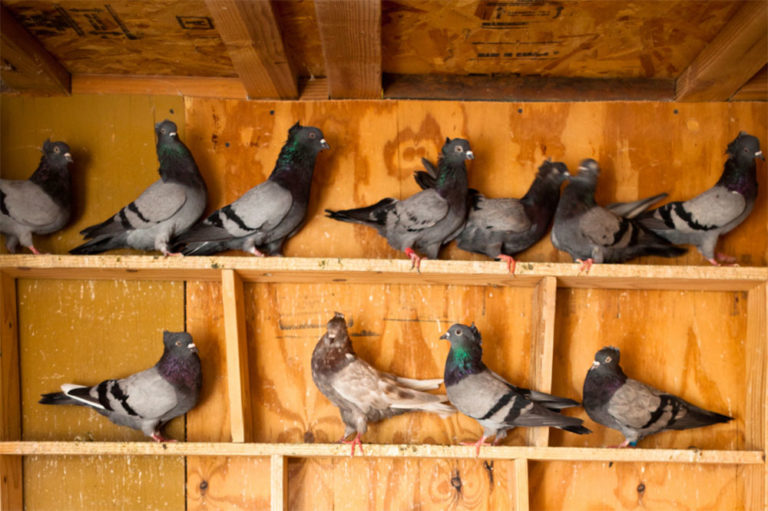Are Pigeons Good Pets? A Complete Guide to Keeping Pigeons at Home

Introduction: Considering a Pigeon as a Pet
Pigeons are often overlooked as pets, but for those seeking a gentle, intelligent, and affectionate companion, they can be a rewarding choice. The question “Do pigeons make good pets?” deserves careful consideration, as keeping a pet pigeon involves unique benefits and challenges. This guide explores all aspects of pigeon ownership, including their behavior, care requirements, training potential, and the practical steps to creating a safe and happy home for these remarkable birds.
Understanding Pigeon Personality and Behavior
Pigeons are intelligent , gentle , and surprisingly social animals. Unlike some birds, pigeons quickly learn household routines and adapt well to life indoors or outdoors when provided with appropriate care. Many owners report that their pigeons develop strong bonds with humans and, if socialized, with other pets in the household. Pigeons are not as noisy as parrots, and their cooing is generally quiet and soothing, making them suitable even for apartments or homes sensitive to loud animal sounds [1] [2] [3] .
Pros of Keeping Pigeons as Pets
1. Intelligence and Trainability: Pigeons are highly trainable and can learn simple tricks, commands, and even basic recall. Some owners have reported teaching their pigeons to step up on command, recognize flashcards, and perform tasks for treats. This intelligence can make them very engaging companions for those willing to interact regularly [2] [3] .
2. Quiet Demeanor: Unlike parrots, pigeons rarely make loud noises. Their soft cooing is generally considered pleasant and non-intrusive, making them ideal pets for apartments or shared living spaces [2] [3] .

Source: radiosapiens.es
3. Emotional Companionship: Pigeons are affectionate and form strong bonds with their caretakers. They often seek out human company, follow their owners around, and enjoy gentle handling and attention. If you spend significant time at home and want a companion who enjoys your presence, a pigeon may be an excellent fit [1] [2] .
4. Simple Diet and Care: Pigeons eat a straightforward diet, mainly consisting of grains and seeds, occasionally supplemented with vegetables. Commercial mixes for pigeons are readily available at pet stores. Fresh water and grit for digestion are essential. Their care routine is less complex than that of some parrots, which require more specialized diets and enrichment [2] .
Cons and Challenges of Pet Pigeon Ownership
1. Mess and Dust: Pigeons produce more dust than many other pets, and their droppings can be frequent. Without proper management, this can quickly become overwhelming. Owners must clean cages regularly and, if pigeons are allowed to roam indoors, be prepared for daily sweeping or vacuuming. For those especially sensitive to dust or with allergies, this may be a significant drawback [5] .
2. Poop Management: Pigeons do not have control over their droppings, so indoor birds may require special accommodations. Some owners use washable cage liners, strategically place paper, or invest in “pigeon pants”-small, comfortable harnesses with diapers to catch droppings. These need to be changed every few hours for the bird’s health and hygiene. With training and consistency, some pigeons can be taught to use a designated area [1] .
3. Social Needs: Pigeons are emotional and can become lonely if left without companionship. Ideally, they should have another pigeon or regular, meaningful interaction with their human family. A single pigeon kept alone for long periods may develop behavioral issues or depression [1] [2] .
4. Space Requirements: Pigeons need a spacious cage or aviary, even if they are allowed out daily for exercise. For a pair, experts recommend a double-flight cage or a large dog kennel. Daily out-of-cage time is essential for their physical and psychological well-being [1] .
Legal and Ethical Considerations
In most regions, owning pigeons as pets is legal, but there may be restrictions on keeping wild or feral pigeons. Fancy or domesticated breeds are typically allowed, but always check your local animal control ordinances or homeowners’ association rules before acquiring a pigeon. Adopting from a rescue or shelter can be a responsible and ethical way to find a companion pigeon. For more information, you can search for “pigeon rescue” organizations in your region or contact your local animal shelter for guidance [1] [4] .
Step-by-Step Guide to Bringing a Pigeon Home
1. Assess Your Lifestyle: Consider your home environment, daily routine, and willingness to interact with your pet. Pigeons need regular attention and companionship.
2. Prepare Their Space: Choose a large cage or aviary with enough room for flight and perching. Provide perches, toys, and a sheltered area for resting. Place the cage in a draft-free, safe area away from extreme temperatures.
3. Plan for Diet and Supplies: Purchase a high-quality pigeon seed mix, fresh vegetables, grit, and a water dispenser. Research local pet stores or online suppliers for these essentials.
4. Find a Pigeon: To adopt, search for “pigeon rescue” or visit your local animal shelter. Avoid taking wild pigeons, as they may carry diseases or be protected by law.
5. Establish a Routine: Spend time daily with your pigeon, offering treats, gentle interaction, and supervised out-of-cage time. Keep to a regular feeding and cleaning schedule.
6. Address Health and Safety: Seek out an avian veterinarian for annual checkups and advice. Monitor your pigeon for signs of illness, such as changes in behavior, appetite, or droppings.
Training, Socialization, and Enrichment
Pigeons thrive on mental stimulation. Use positive reinforcement to teach simple tricks, such as stepping up, recall, or using a perch. Offer toys, mirrors, and foraging opportunities to keep your pigeon engaged. Socialize your pigeon gradually with other pets, ensuring their safety with dogs or cats. For more advanced training, watch tutorials or connect with online communities dedicated to pigeon care [2] [3] .
Alternatives and Additional Resources
If you are unsure about committing to a pigeon, consider volunteering at a local bird rescue or fostering a pigeon temporarily. This experience can help you determine if a pigeon is the right fit for your household. You may also explore keeping doves, which share some traits with pigeons but have slightly different care needs.
For those seeking more information, you can search for terms like “pigeon pet care guide,” “adopt a pigeon,” or “pigeon rescue [your city]” to find reputable organizations and resources. Always verify the credibility of any organization before adopting or purchasing a pet.

Source: mimundomanualyartistico.blogspot.com
Key Takeaways
Pigeons can be excellent pets for individuals or families willing to meet their social, physical, and hygiene needs. They are intelligent, affectionate, and relatively quiet, but require daily attention, a clean environment, and a commitment to companionship. Before bringing a pigeon home, carefully consider both the advantages and challenges, and prepare to provide a safe, enriching life for your new feathered friend.
References
- [1] PigeonRescue.org (2021). Pigeons As Pets: Outside or Indoors.
- [2] YouTube (2023). Are Pet Pigeons Right For You? Discover Pros and Cons.
- [3] YouTube (2024). THE PROS AND CONS OF HAVING A PET PIGEON!
- [4] YouTube (2021). Pros and Cons of having a pet pigeon.
- [5] TikTok (2022). Pet Pigeon Pros & Cons: Should You Get One?






